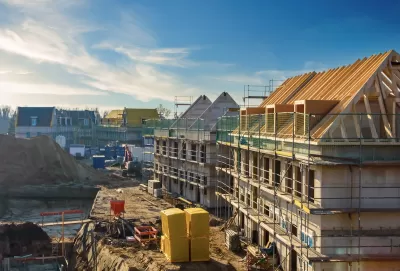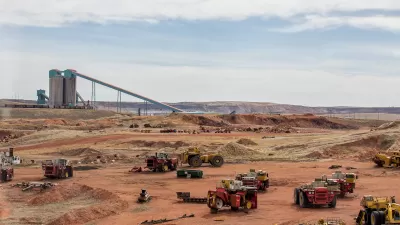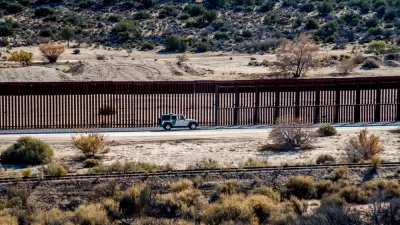Many affordable housing developers worry Trump’s proposed taxes on imports and crackdown on immigration will be detrimental to the industry. Others hope deregulation reduces development costs enough to offset those effects. What’s the most likely outcome?

Housing industry experts warn that President Trump's Day One executive orders and promised policies could severely impact affordable housing development through a combination of immigration enforcement and trade policies. According to a new Shelterforce investigation by Shelby R. King, the affordable housing sector faces unique vulnerabilities to these changes.
Key takeaways:
- Proposed 25 percent tariffs on Canadian and Mexican imports, plus 60 percent on Chinese goods, could significantly increase construction costs. The National Association of Home Builders estimates a 10 percent tariff would add $3.2 billion to building material costs.
- Mass deportations could exacerbate the existing construction labor shortage, particularly impacting affordable housing developers who often can't compete with luxury developers for scarce workers.
- While the administration promises deregulation will lower costs, experts question whether regulatory cuts could offset rising material and labor expenses. Most impactful regulations are local, not federal.
- Affordable housing developers face tighter margins than market-rate developers and can't simply raise rents to absorb higher costs. Housing Partnership Network warns of potential "widespread bankruptcies" if costs continue rising without additional resources.
The article features insights from industry leaders including the National Housing Conference, Housing Partnership Network, National Association of Home Builders, and housing policy experts who explain why affordable housing development could be particularly vulnerable to these combined pressures.
FULL STORY: How Might Tariffs and Deportations Affect Affordable Housing Development?

Maui's Vacation Rental Debate Turns Ugly
Verbal attacks, misinformation campaigns and fistfights plague a high-stakes debate to convert thousands of vacation rentals into long-term housing.

Planetizen Federal Action Tracker
A weekly monitor of how Trump’s orders and actions are impacting planners and planning in America.

San Francisco Suspends Traffic Calming Amidst Record Deaths
Citing “a challenging fiscal landscape,” the city will cease the program on the heels of 42 traffic deaths, including 24 pedestrians.

Defunct Pittsburgh Power Plant to Become Residential Tower
A decommissioned steam heat plant will be redeveloped into almost 100 affordable housing units.

Trump Prompts Restructuring of Transportation Research Board in “Unprecedented Overreach”
The TRB has eliminated more than half of its committees including those focused on climate, equity, and cities.

Amtrak Rolls Out New Orleans to Alabama “Mardi Gras” Train
The new service will operate morning and evening departures between Mobile and New Orleans.
Urban Design for Planners 1: Software Tools
This six-course series explores essential urban design concepts using open source software and equips planners with the tools they need to participate fully in the urban design process.
Planning for Universal Design
Learn the tools for implementing Universal Design in planning regulations.
Heyer Gruel & Associates PA
JM Goldson LLC
Custer County Colorado
City of Camden Redevelopment Agency
City of Astoria
Transportation Research & Education Center (TREC) at Portland State University
Jefferson Parish Government
Camden Redevelopment Agency
City of Claremont





























